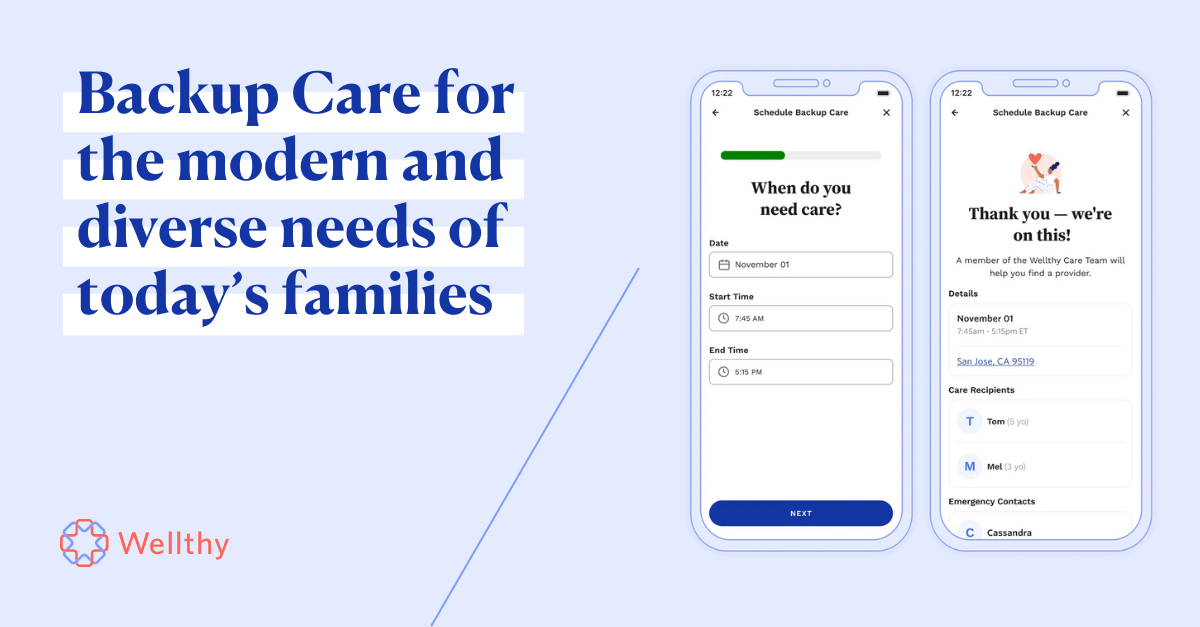Nearly everyone will provide care for a loved one at some point in their lives. And yet even though so many of us know this will be part of our future, so few actually plan ahead for caregiving.
What’s driving the urgency behind planning for care?
Wellthy’s new experience, Care Planning, empowers families to have conversations about care long before a caregiving situation becomes an emergency or crisis. And it aims to drive one very urgent cultural point: the moment to start talking about and planning for care is now.
These are some of the key data points facing families and workers today.
- 76% of unpaid caregivers are untrained, untaught, and unprepared to provide care for a loved one – many times assuming caregiving responsibilities after a sudden crisis or event causes a loved one to need acute and/or long-term care
- 57% of all caregivers report clinically significant levels of stress, anxiety, or depression
- Caregivers spend an average of 45 hours a week caring for a loved one
- 10,000 people turn 65 years old every day – a pace that will continue throughout the next decade – and 70% of these individuals will require longer-term care
- Only 25% of workers considered employment extenders – those working past traditional retirement ages – say that they’re planning for the possibility of providing care or support for a partner or for a loved-one
- 56% of American workers – roughly 90 million people – have caregiving responsibilities on top of their full-time jobs
- 1 in 3 employees have left a job in their professional career because of caregiving
- 29% of caregivers reported taking reduced hours or a leave of absence from work in order to take care of acute caregiving responsibilities
- 90% of working caregivers say they lack the support of their employer to help them juggle their jobs and their family caregiving responsibilities
All of these numbers paint a picture of what the care crisis and the care gap look like today across society. And while it sounds overwhelming, it doesn't have to be this way. There are concrete steps that families and employers can do to prevent caregiving moments from becoming catastrophic crises.
For employers, the research couldn't be more clear: providing caregiving benefits drives retention and inclusivity in the workplace, and profoundly reduces stress and anxiety for employees – especially those in the proverbial "sandwich generation" caring for aging parents as well as their own kids. Making sure these employees have benefits to deal with immediate caregiving needs, as well as resources to plan ahead for caregiving, can be a gamechanger for retaining and supporting your workforce.
For families, the care crisis is a wake up call that we can't sit idly by without preparing for caregiving needs. We plan for retirement, we plan for weddings, we plan for honeymoons, and we plan for vacations – but so few families plan ahead for caregiving. Starting today, every family could start dialogue and conversation about future caregiving.
While it may push us out of our comfort zones and force us to confront the idea of aging, planning now for caregiving needs in the future can help thousands of families and employees be ready for when a caregiving moment inevitably strikes. That’s one of the major goals of Wellthy’s new experience, Care Planning: provide families with the guides, tools, and steps necessary to prepare ahead of time for every possible caregiving situation.







